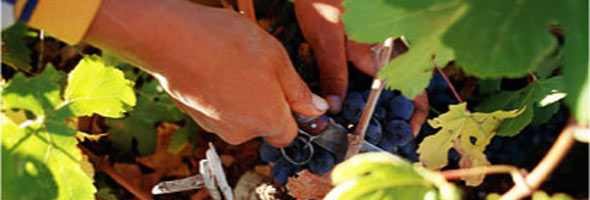Lebanon Tourism: Lebanese Wine
In the ancient world, Lebanese wine was celebrated The Romans so celebrated the wines of the Bekaa Valley that they dedicated one of the largest temples to wine in the world—the famous Temple of Bacchus in Baalbek.
Lebanese Wine
History of Lebanese Wine
Lebanon’s Bekaa valley was one of the first vinicultures in the world, with evidence of wine-making going back 7000 years. Records show the Phoenician ships carrying wine to Egypt almost 4000 years ago.
In the ancient world, Lebanese wine was celebrated The Romans so celebrated the wines of the Bekaa Valley that they dedicated one of the largest temples to wine in the world—the famous Temple of Bacchus in Baalbek.
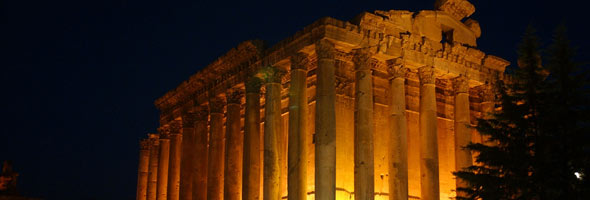
Over the centuries, wine making declined; under the Caliphate it was tolerated on a very small scale only for Christians. It was not reborn as an industry until the nineteenth century. In 1857, French Jesuits discovered that the Bekaa Valley had ideal soil, climate, and growing season for grapes. They built a monastery and began producing wine. At the same time, they discovered natural caves in Ksara with constant temperature and humidity—perfect for storing and aging wine.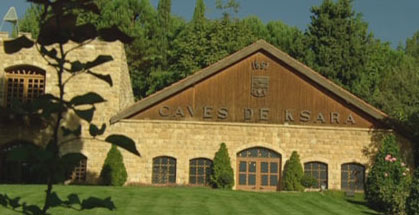
In the late nineteenth century, some Jesuit priests were killed, and the Ottoman government compensated France by offering 240 hectares about 3 kilometers from Ksara, which is now the home of Château Ksara. The winery there was operated by monks until 1972, when the Second Vatican Council decided that Catholic organizations should divest themselves of income-producing activities. The winery was sold to a group of Lebanese businessmen.
In 1868 a French engineer, Eugène François Brun, set up Domaine des Tourelles, but few others followed until six decades later when Château Musar was founded in 1930. By 1988, Lebanon boasted 5 wineries, then grew to 15 wineries by 2005. Since then this number has grown to over 30. Recent wineries have also grown up outside the Bekaa Valley; there are now three different wine regions in Lebanon: in the Bekaa valley, in the hills, and along the coast.
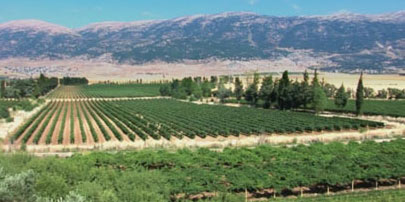
Current Developments in Lebanon Wine Industry
Almost all Lebanon wineries concentrate on quality, high-end wines. Partly this is because the Bekaa Valley is one of the world’s most ideal places for growing quality grapes; partly because that is the kind of vintner who is investing in starting new wineries, and partly because for a small country, that is where the export market is.
Wine production in Lebanon is presently 600,000 cases, over half of which is exported.
Lebanese wines first received international recognition at the Bristol Fair in 1979, but in recent years have proved themselves winners in international wine competitions held all over the world—from France to Hong Kong. Since 1988, Château Kefraya has been wining awards and honors in many international wine competitions.
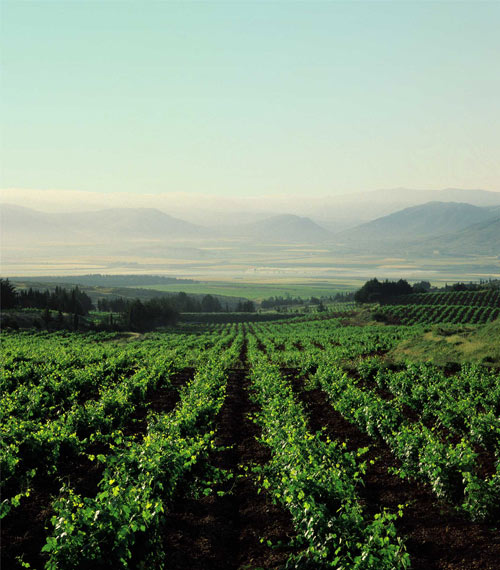
But quality wine production and export is not the only lure to investors and vintners. Lebanon’s vintners are also taking the lead in another industry: tourism. Wineries are not only constructing the latest in fermentation technology, they are also conducting tours of their vineyards; they are building romantic guest houses, restaurants, and even hotels to compliment their rustic tasting rooms and outside patios that assure maximum enjoyment to wine tasters in the cool of the evening. Many are also investing in the beauty of their terraces and grounds in order to provide a premium wine experience to visitors. As a result, travel agencies are now organizing bus tours of wineries.
